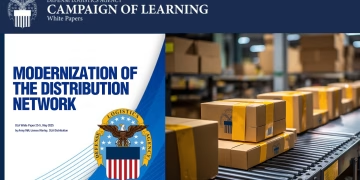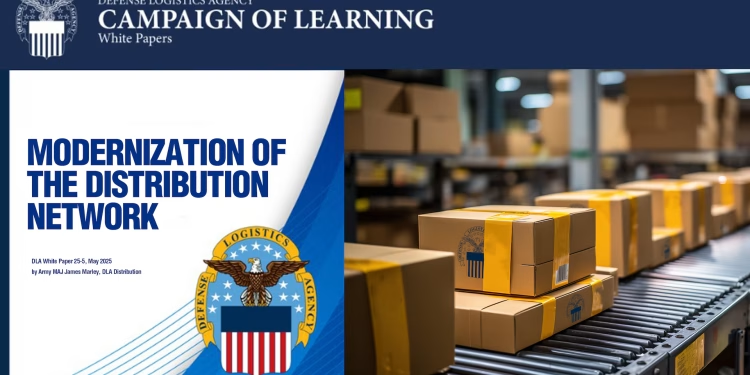By Maria Kalamatas | July 30, 2025
Washington, July 30 — The U.S. Defense Logistics Agency (DLA) is expanding beyond its traditional remit of supplying the armed forces, taking on a larger role in supporting American diplomatic posts and humanitarian operations abroad. The shift reflects a growing demand for reliable logistics networks in regions where instability threatens both security and aid delivery.
“This is not about shifting our focus away from the military,” said Brigadier General Carl West, the agency’s deputy director. “It’s about using the reach we already have to make sure civilian teams — whether they’re diplomats, contractors, or aid workers — can operate safely and effectively.”
Bringing two worlds together
The DLA is now leveraging its procurement and transport hubs to stockpile essentials ranging from communications equipment and medical supplies to power units and secure rations. By positioning resources at regional hubs, the agency can respond more quickly when crises erupt, ensuring that both defense and diplomatic missions have uninterrupted support.
“We’ve spent decades building a global supply chain for military needs,” West explained. “Now we’re applying that experience to stabilize critical civilian operations in volatile areas.”
Navigating new challenges
This expanded scope introduces complexities rarely faced in military-focused logistics. Export controls, customs delays, and coordination across multiple government agencies often slow the movement of civilian aid. To address this, the DLA has stationed liaison teams within State Department logistics units to align processes and accelerate delivery.
“The difficulty lies in merging two systems with very different priorities,” said Marianne Torres, a Washington-based logistics advisor. “Defense moves with rigid precision, while diplomatic and humanitarian work often needs flexibility. Combining them without friction is the test.”
What it means for the logistics sector
The broader mission is opening doors for private contractors and freight forwarders, as the DLA increasingly outsources non-critical segments of its work to commercial operators. Analysts say this could create opportunities for carriers with the capacity to handle secure and rapid deliveries under tight compliance rules.
“For logistics companies, this isn’t just another contract,” Torres added. “It’s a chance to work on projects that balance national security with humanitarian relief — and that balance will define a lot of future operations.”





















